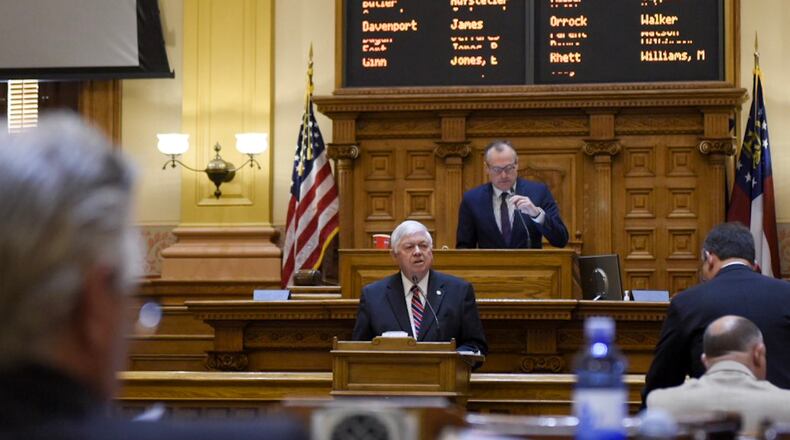The Georgia Senate set up negotiations with the House on a final budget deal Wednesday by passing a spending plan that includes pay raises for 200,000 teachers and state employees and more than $1 billion worth of new construction projects.
The plan also includes $485,000 so Senate committee meetings can be streamed over the internet. Currently, House meetings are streamed, but the Senate has in the past resisted making its meetings accessible to people who can't attend live.
Both chambers must agree on a spending plan for fiscal 2018, which begins July 1, before the session ends March 30. Both the House and now the Senate have approved versions of the budget that largely follow what Gov. Nathan Deal proposed in January. Negotiators will work on the differences between the two chambers and fit in any last-minute spending additions the Deal admininstration requests.
The total spending plan tops $49 billion when federal and other funds are included.
It would provide 2 percent pay increases for teachers and most state employees, and a 19 percent raise for child protection workers. The raises cost the state about $360 million. Retired state employees would get a 3 percent one-time bonus, as they did last year.
The spending proposal includes more than $1.15 billion in new borrowing. High on the list is $105 million to build a new state courts building on the site of the former archives building in Atlanta, which was brought down earlier this month.
Under the budget, doctors would receive an increase in payments for treating Medicaid patients, and millions more would go to increasing autism services for children in the program, which provides health care to the poor and disabled. The Senate added $46 million to increase payments to nursing homes.
Both chambers also added funding for dentists who treat low-income Medicaid patients, for school counselors, and to address the backlog in processing DNA rape evidence packages.
The budget for the upcoming year includes $223 million to help keep the state's Teachers Retirement System on strong financial footing. State officials said the payment is one of the largest subsidies — if not the largest — in the program's history.
About the Author
Keep Reading
The Latest
Featured



